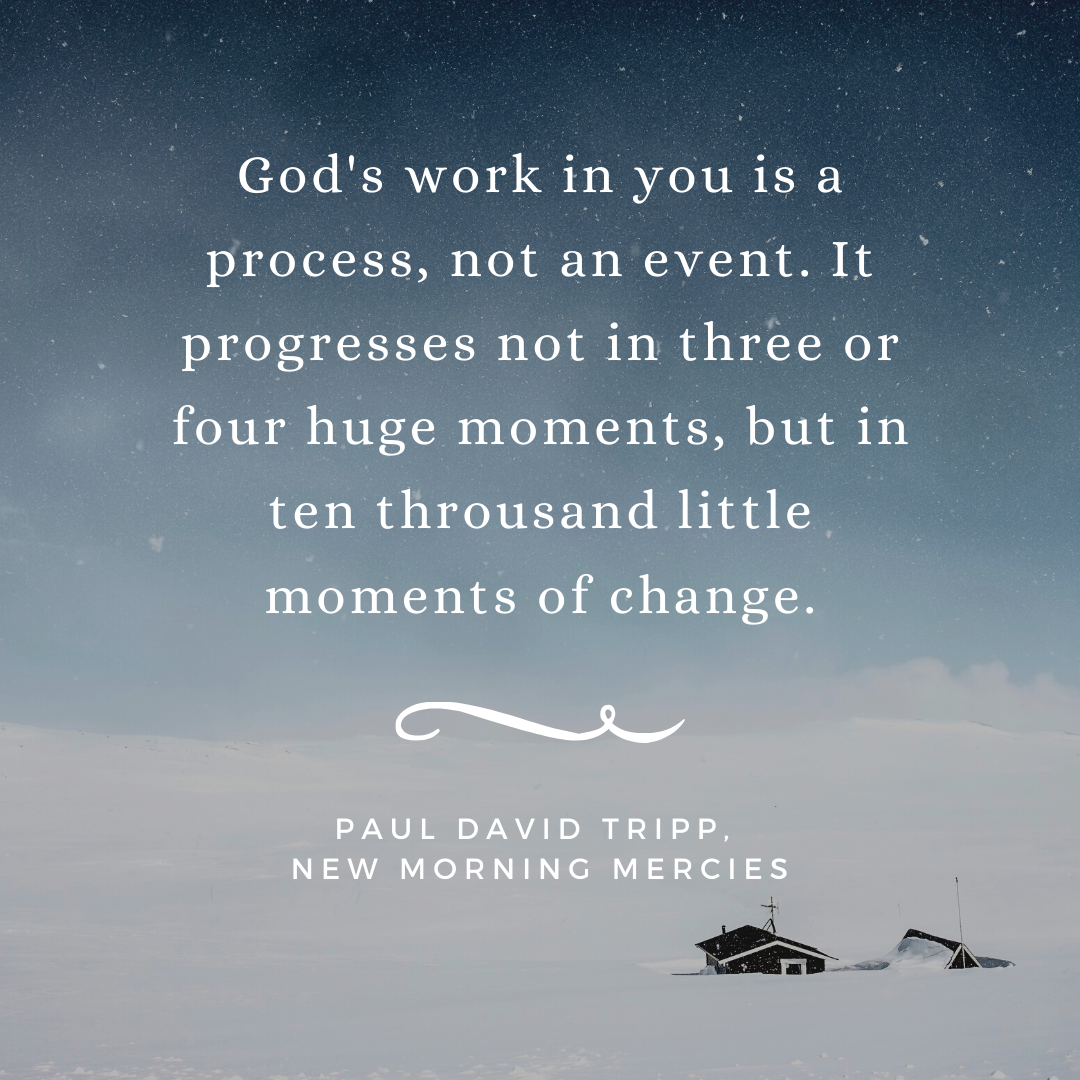|
Big resolutions intimidate me. You know . . . grandiose, mind blowing, epic promises of transformation. As in, by the end of 2022 I will be a different woman! You won't even recognize me after I . . .
Yep, it's going to be a great year. But first, I need to go take a nap . . . You may have guessed it by now - I typically do not make resolutions. At least not these type of too-specific, too-vague, too-unrealistic kinds of promises. To be clear, I think there are times and seasons when these kinds of resolutions may be exactly what we need. Sometimes we reach a point where something's gotta give. Desperate times call for desperate measures. We need to make big changes if we want to change our lives in big ways. But most years, what I really need is the power of small changes. I need bite-sized action steps. I need what John Trent, in his article, Course Correction (first published in Thriving Family Magazine, 2009), calls the "power of 2-degree changes." Using the illustration of a steering wheel in a car, he demonstrates the power of small shifts on the course of our lives. When you turn a steering wheel just 2 degrees to the right or left, over time, it changes the direction of where you are headed. 2-degree changes - both positive and negative - have the potential to run us off the road or move us in a better direction. Over time, these small adjustments add up to a cumulative impact on our lives. Small, steady changes have the power to transform our physical, mental, emotional, and spiritual health as well as the health of our relationships. So instead of big resolutions hanging over my head, I'm thinking of smaller, doable shifts:
If you haven't yet taken some time to look over that last year and reflect on where you've been, and then look ahead and think about where you are headed, I'd encourage you to do that. I have been spending some time reflecting on this and here are some helpful questions I've explored: What healthy habits am I already doing, and how can I continue/increase these as I head into 2022? What habits have I developed that are unhealthy, and how can I move away from these and make better choices? (This may include unhealthy relational patterns or patterns of addiction - wherever we may be moving towards things as a way to escape/cope with stress, pain, or loneliness.) What relationships are life-giving? How can I intentionally increase connection with people who inspire, encourage, challenge me (in good ways) and fill my bucket? What relationships may be pulling me in a direction I don't want to go? Do I need to distance myself from or change the way I am engaging with certain people as I create healthier boundaries? Are there people whom I need to forgive or ask forgiveness for something I have done? Where has God been moving-stirring-prompting me in service or ministry to others? How can I grow and develop the gifts he has given me for the good of others and to bring Him honor? Where might God want me to increase giving my time, energy and resources? Where might God be wanting me to pull back and refocus my attention? Is there an area of my life where I need healing, and is God leading me to get help from a trusted friend, leader, or counselor? How have I grown closer to God over this past year? Was it through a Bible study, small group, time spent alone with God in prayer? How will I increase this, and what pathways enable me to best connect with God? Looking at what is and is not working is incredibly important as we move forward and think about the small shifts we want to make in 2022. One final thought: While most of us experience a few monumental, pivotal moments in life, most of our growth and transformation happens through the small, steady changes we make from one day to the next. I love how Paul David Tripp puts it in his book, New Morning Mercies, A Daily Gospel Devotional: Whether our resolutions are big or small, I pray that 2022 will be a year of increasing growth and transformation for us all. May we daily draw closer to Jesus as He continues the good work He began in us. (Philippians 1:6)
Comments are closed.
|
Sign up for updates:
Archives
January 2024
|



 RSS Feed
RSS Feed